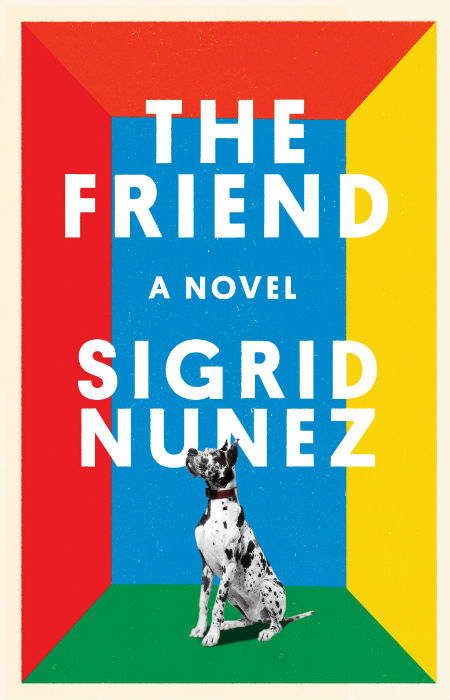
There are many predictable, known things in this life but grief, alas, is not one of them.
The form it takes is as individual as the person grappling with it, a contrary beast that demands different things of different people, and which is never, ever left behind, though its impact and severity diminishes with time.
In The Friend by Sigrid Nunez, we are given a remarkably insightful, deeply-empathetic look deep into the slow and winding, and often unknowable process of grief, as a woman (no one is ever given names in the book) who functions as the observant narrator of the book, struggles to deal with the griefstricken aftermath of her close friend’s death to suicide.
The man, again no names, just genders, is a well-known writer and university lecturer who has lived a big “L” life, full of womanising, marriages and grand ideas, many of which now seem quaintly and yet almost dangerously out of date in our far more conservative age.
“It’s not that I can’t say how I feel. It’s very simply. I miss you. I miss you every day. I miss you very much.” (P. 155)
As the narrator strives, often fruitlessly, to interpret or even justify a world in which her friend is gone, and many others are not – “Who are all these fucking people, and how is it fair, how is it even possible that all of them, these perfectly ordinary people should be alive?” – she feels obligated to take on the ageing Great Dane her friend owned, even though she lives in a small 500-square-foot apartment in New York City that expressly prohibits man’s best friend.
For reasons she can’t even explain, she knows she needs to look after the dog who is as lost and lonely in his own way as the woman, and what begins as an almost-necessary obligation, soon becomes a wonderful story of companionship and togetherness that helps to mend some of the pain she is feeling.
Unfortunately for the healing balm of this person-canine relationship, which some people around her suggest unkindly is incestuous and unhealthy – there is a reference to the writer J. R. Ackerley whose book My Dog Tulip talks about the love of his life relationship with his German Shepherd of sixteen years – Great Danes live short lives, only making it to six to eight years of age.
With the Great Dane perilously close to that age range, the woman faces the very real prospect of more grief following in the wake of the pain and loss she is currently experiencing.

In the midst of her healing and dread, for the two extremes become intertwined over the course of her time with her new companion, the woman ruminates on many of the absurdities of life that she is now forced to reflect on without her lifelong friend and mentor by her side.
A writer, as was her greatly-missed friend, she thinks often about the strange hues and facets of a career where creativity and snide undermining are often uncomfortable bedfellows.
The Friend is also then a rumination on the clarity that comes with loss, when so many things we accept as part of our existential furniture begin to look strange or ill-fitting or simply wrong.
No great epiphanies follow in the wake of her musing; rather the book collects them together so that they end up looking like a series of diary entries, each one quietly and simply remarking on some aspect of her, and by extension, her friend’s now-ceased life, that had hitherto gone unremarked upon.
“Whenever I’d go to a reading I couldn’t help feeling embarrassed for the author. I’d ask myself did I wish that was me up there, and the honest answer was hell no. And it wasn’t just me. You could feel it in the rest of the audience, that same discomfort. And I remember thinking, This is what Beaudelaire was talking about when he said that art was prostitution.” (P. 73)
At times, the book can feel a little remote and emotionally-distant, which is strange given how visceral and painfully real the experience of grief is made to feel, many times over.
The distance comes from the namelessness of the protagonist and of her now-dead friend whose lives feel very real and lived but who, because of their relative anonymity, feel, sometimes, as if they are just shadows of real people.
For the most part though, The Friend, which is beautifully and artfully-written while retaining an accessability and relatable humanity, inhabits grief in ways that will make anyone who has felt its dead hand almost recoil in quiet pain.
There is nothing loud or strident about the book; rather it takes its observances of the many ways grief affects man, and to some extent, beast, and invests them with the reflective mourningfulness of lived experience, acknowledging every step of the way that the process of grieving can seem quite odd and unusual to anyone on the outside looking in.
Even so, there is a universality to The Friend which means that even if you have never felt grief suck the life force out of your day-to-day life, you will relate to how it feels to have your world derailed, your sense of place and time in its soured and corrupted and to suddenly be unsure of the next step forward after a lifetime in which this felt like second nature.